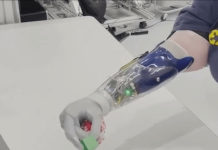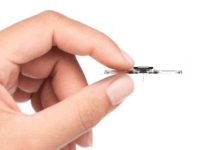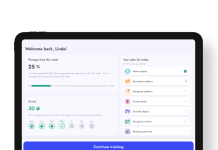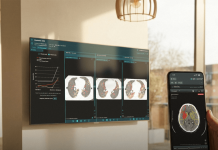Beacon Biosignals raised $86 million in an oversubscribed Series B financing round. A syndicate of healthcare and technology investors, including Innoviva, Google Ventures, Nexus NeuroTech Ventures, S32, Catalio Capital Management and Takeda led the round. General Catalyst, Logos Capital, Casdin Capital and Indicator Ventures participated, too.
The financing brings Boston-based Beacon Biosignals’ total funding to more than $121 million to date. It supports the company’s AI-driven brain biomarker technology.
Related: Nyxoah raises $77M to support Genio sleep apnea neuromod rollout
Beacon develops the Waveband device (previously called the Dreem 3S), which is designed to directly measure brain activity (EEG) during both sleep and wakefulness. The company says the wearable headband brings gold-standard neurophysiology out of the lab and into patients’ homes. Biosignal data produced by the device provides valid, longitudinal measures of brain function across diverse populations.
The company’s platform received FDA clearance in September 2023, then got clearance for updated algorithms late last year.
With its new investment, Beacon plans to scale its technology and operations. It aims to accelerate neurobiomarker discovery and broaden clinical adoption. Its core technology, the Beacon Platform, unites large-scale, clinically validated EEG data with advanced AI to generate objective, quantitative biomarkers of brain function through sleep.
The technology supports R&D programs for some of the world’s largest biopharmaceutical companies and leading biotech companies. Such collaborations leverage AI-driven biomarkers to accelerate central nervous system (CNS) drug development and commercialisation.
Funding follows the recent acquisition of home sleep testing technology from CleveMed. It expands the company’s platform beyond EEG to airflow, respiratory effort and oxygen saturation.
“Our mission is to make brain function measurable and actionable at scale,” said Dr. Jacob Donoghue, CEO and co-founder of Beacon Biosignals. “By training AI on millions of hours of real-world brain data, we’re beginning to map the signals of health and disease in ways that can accelerate drug development and ultimately improve how patients are diagnosed and treated.”




